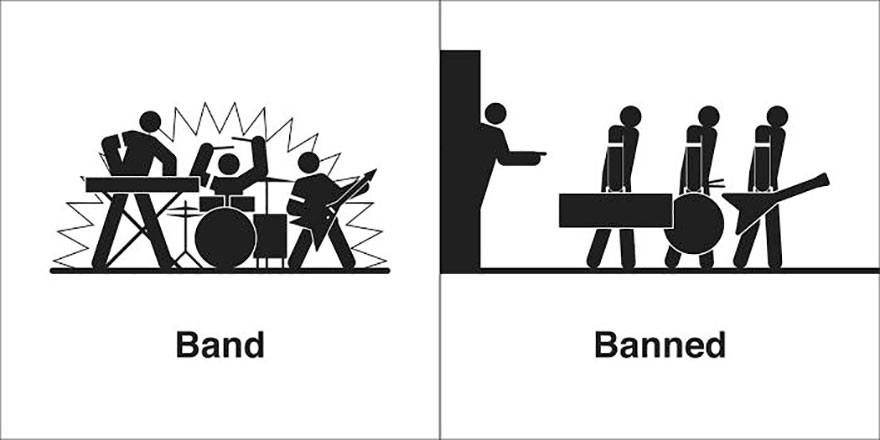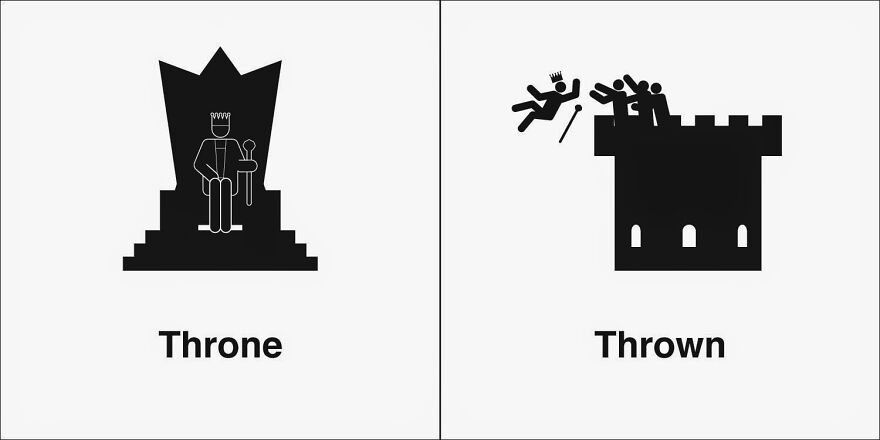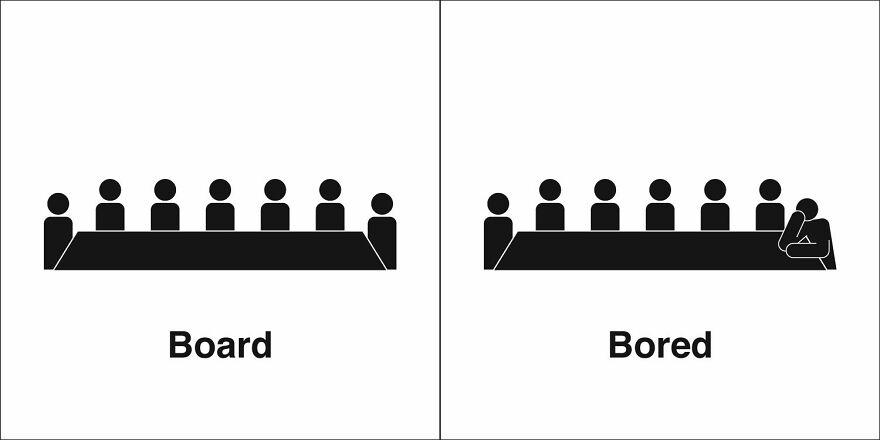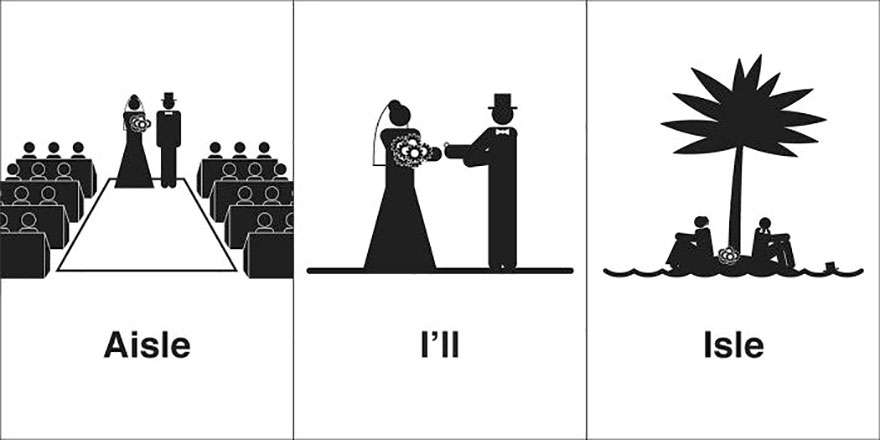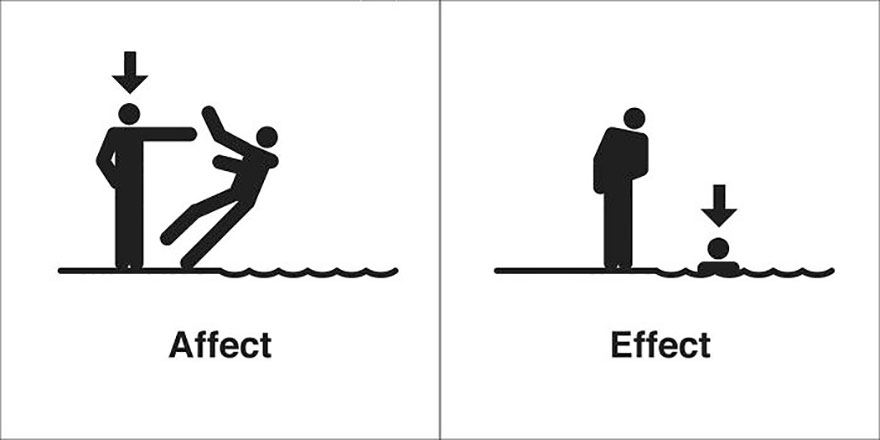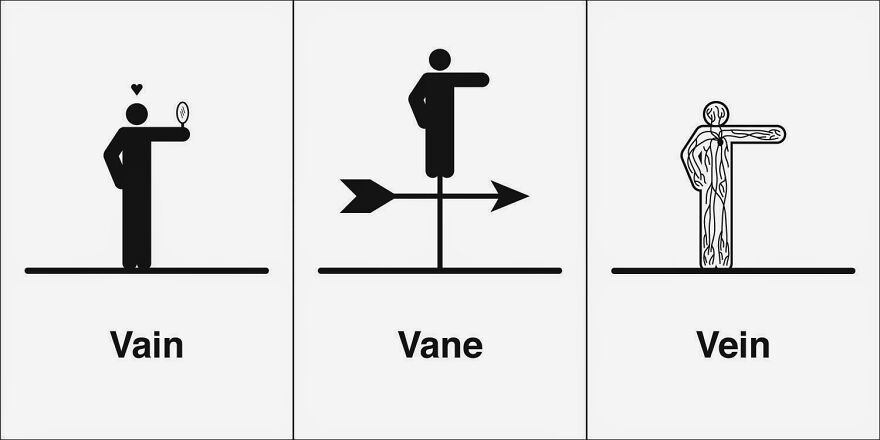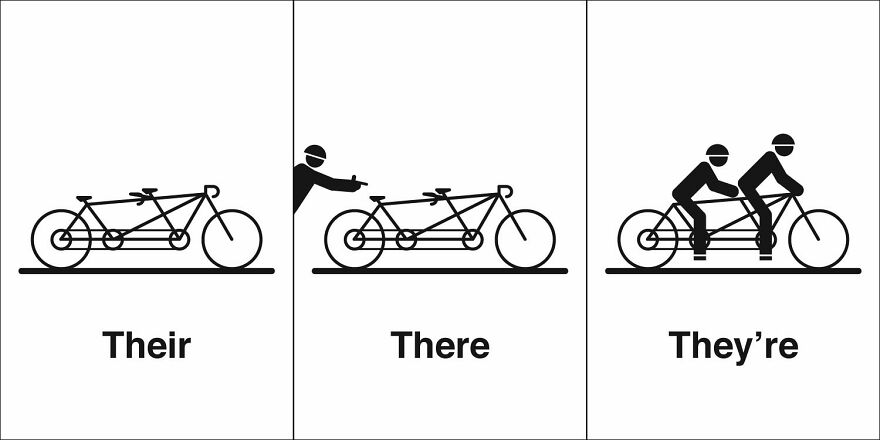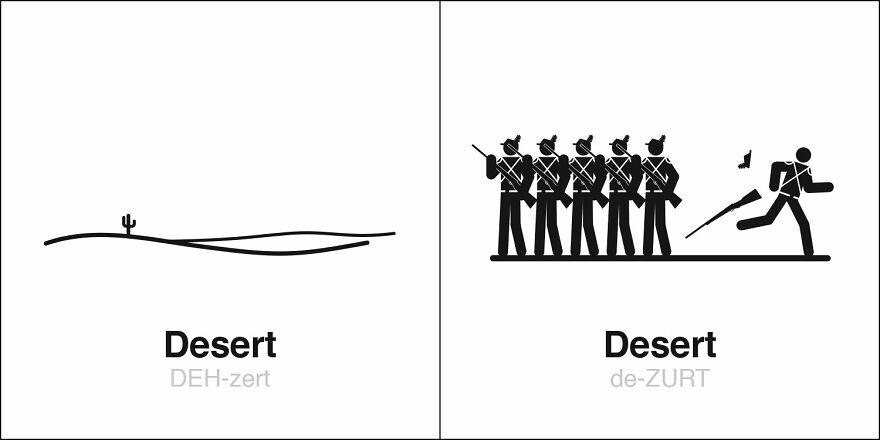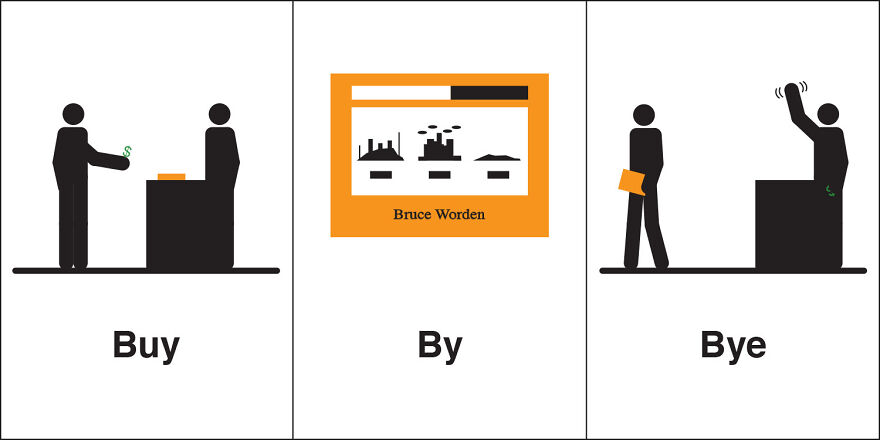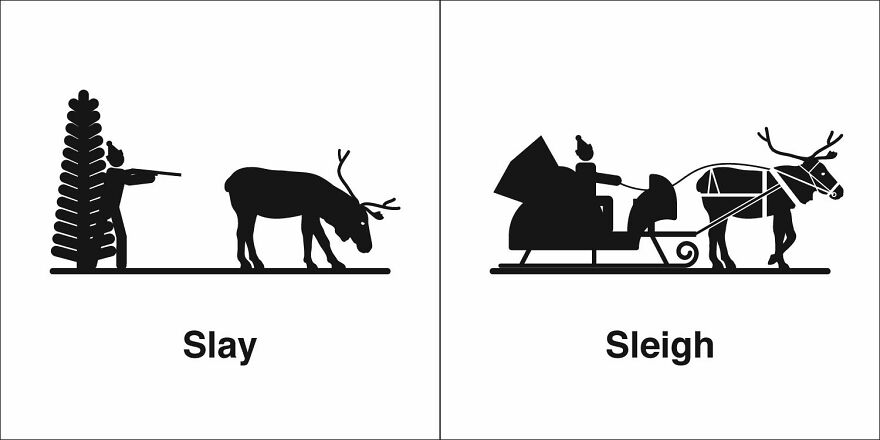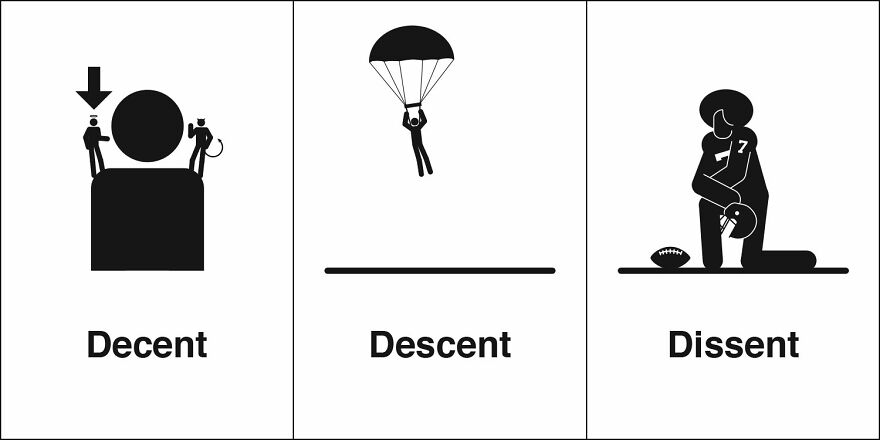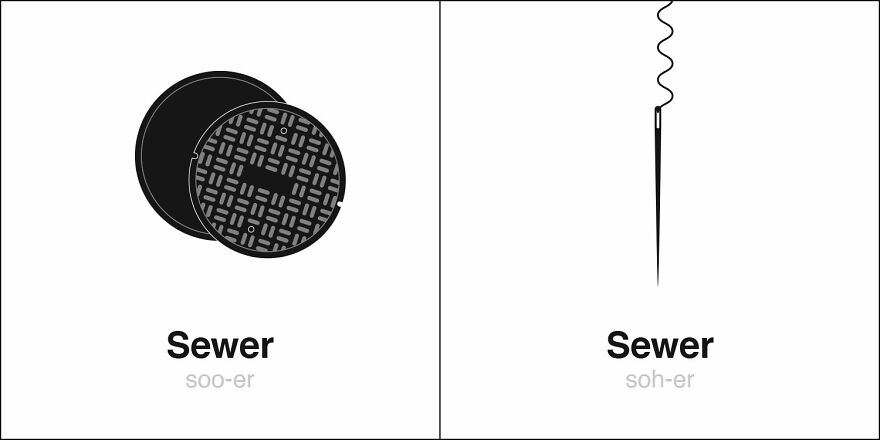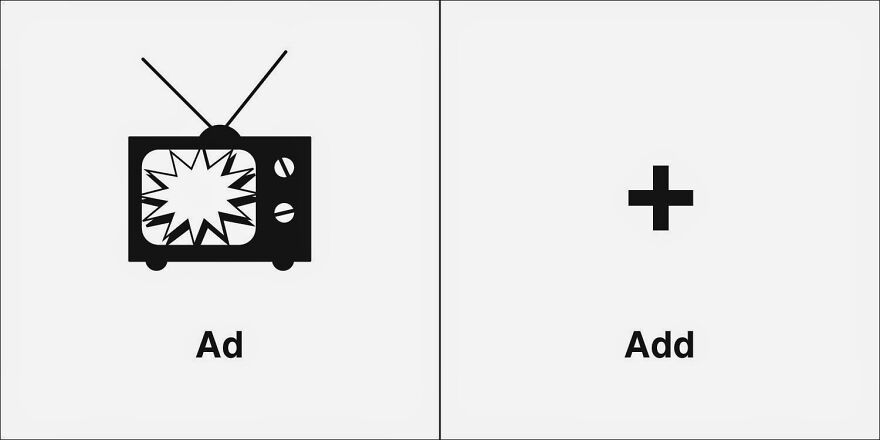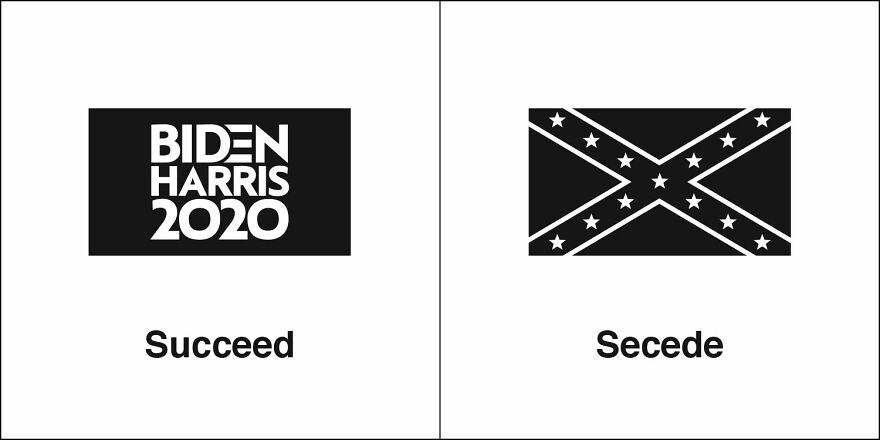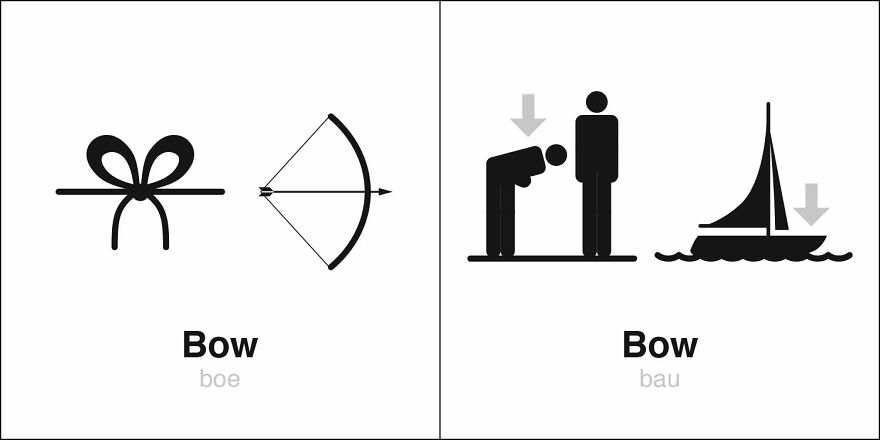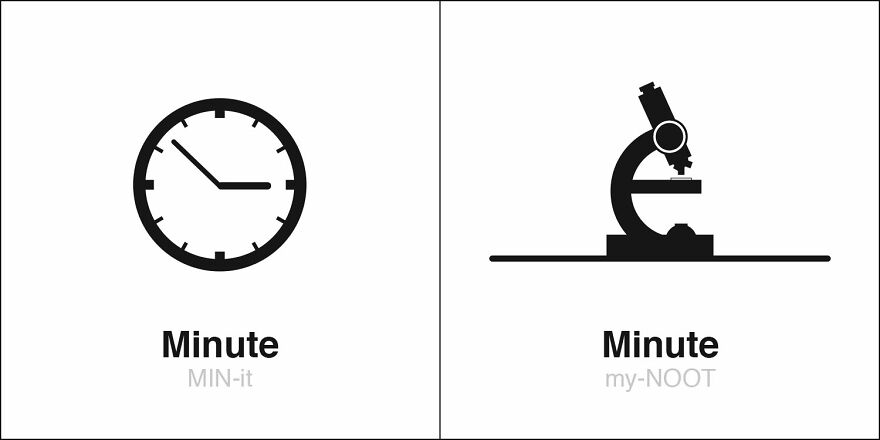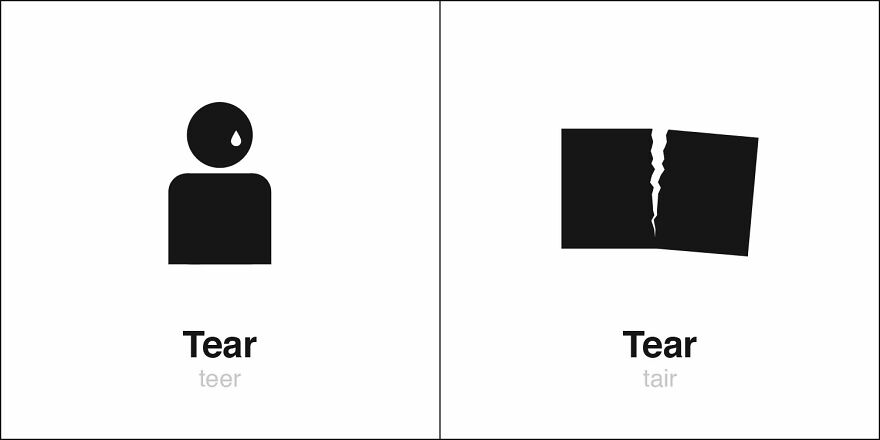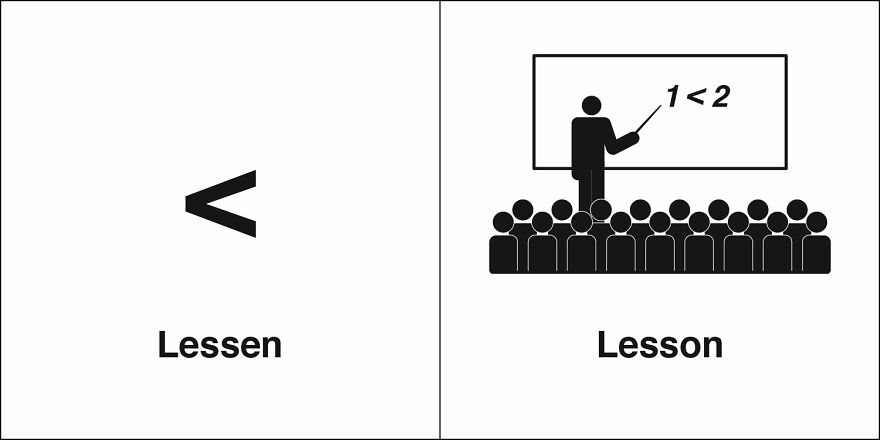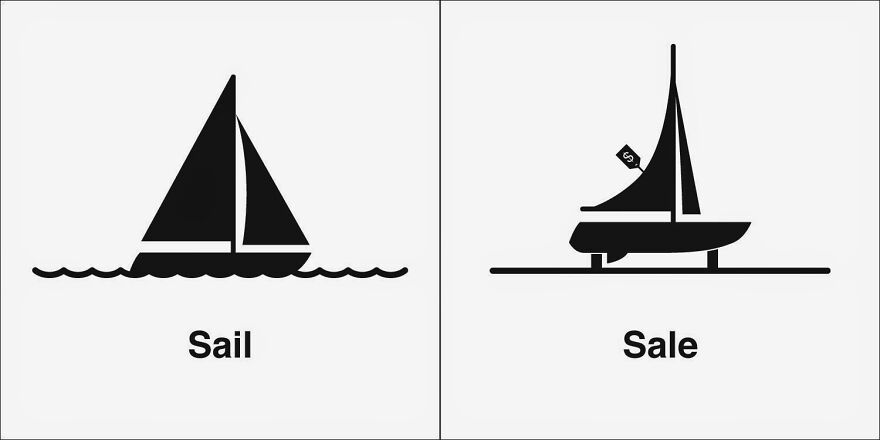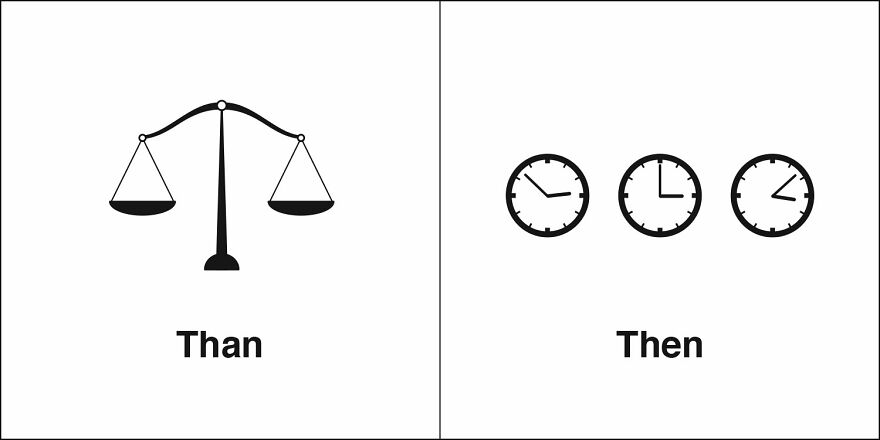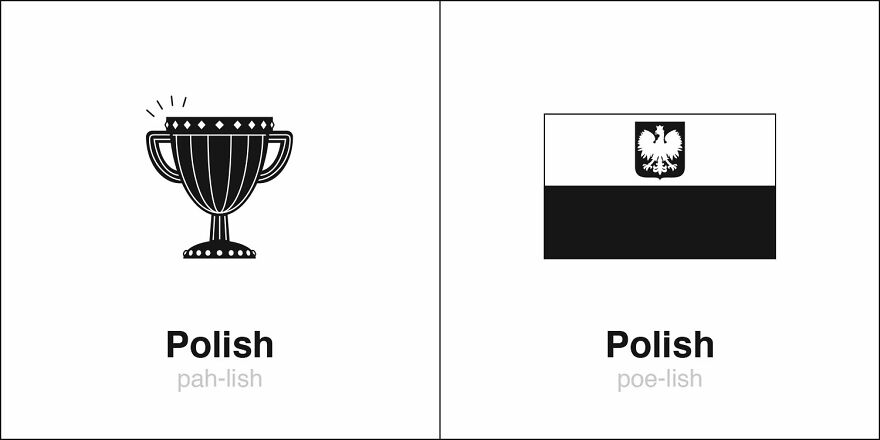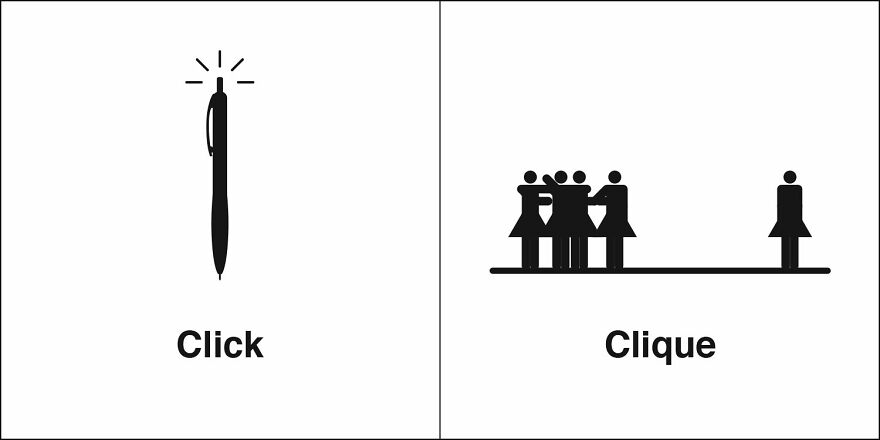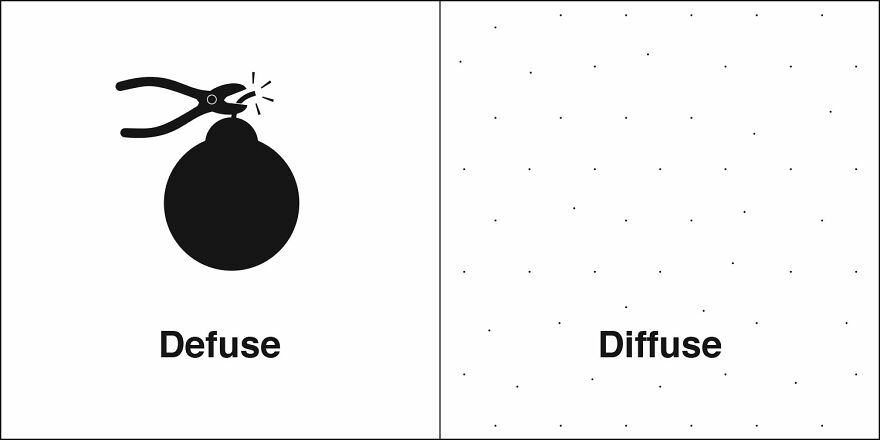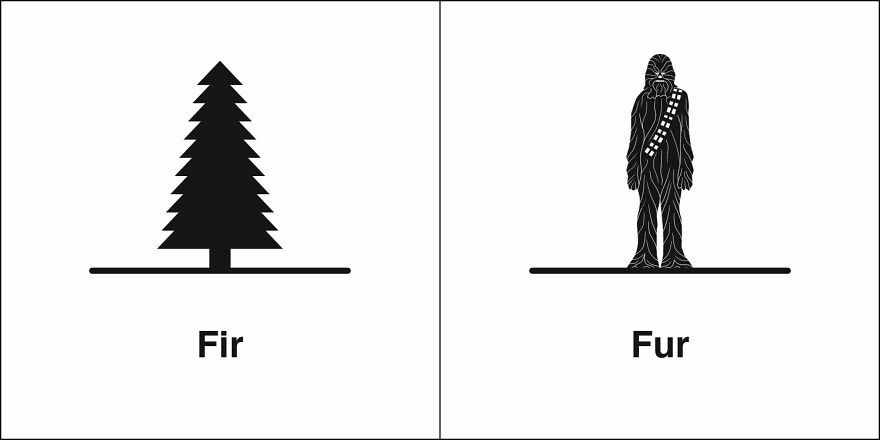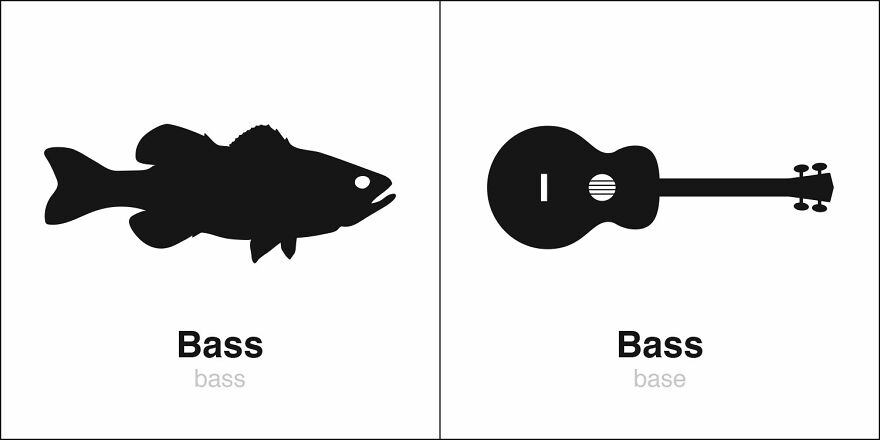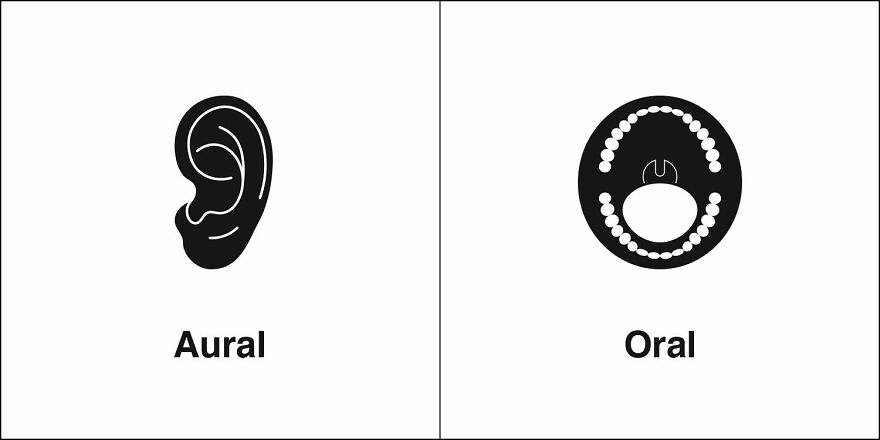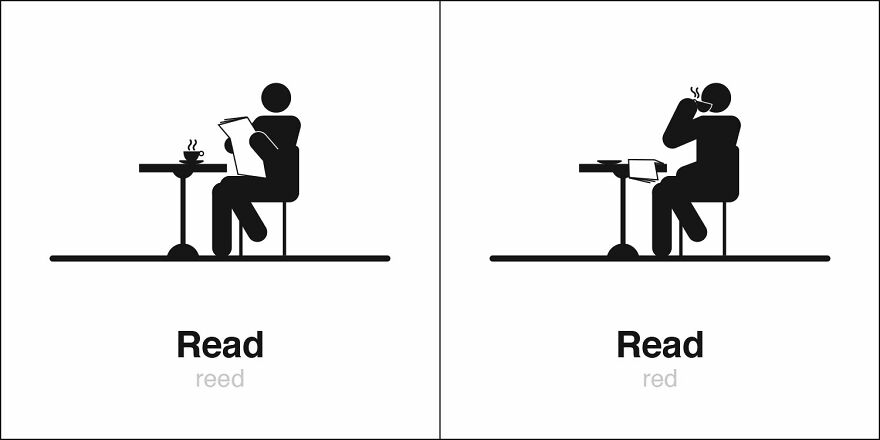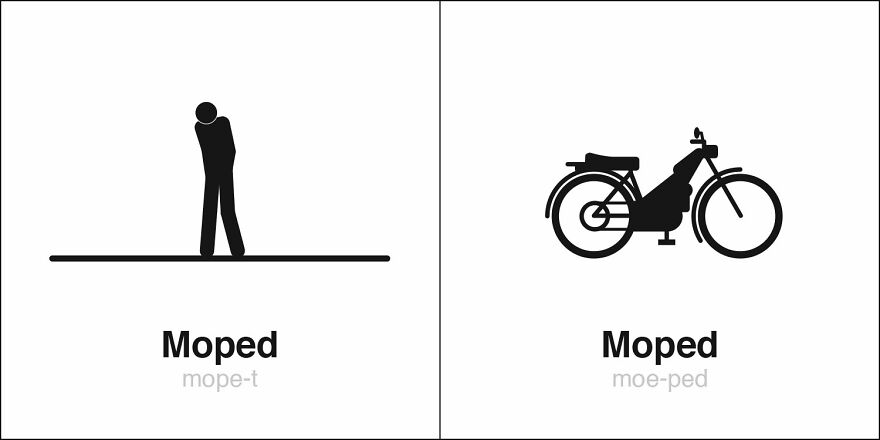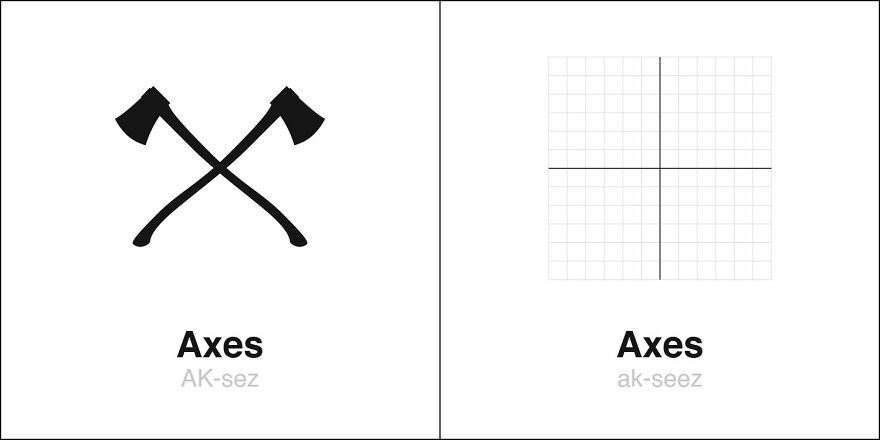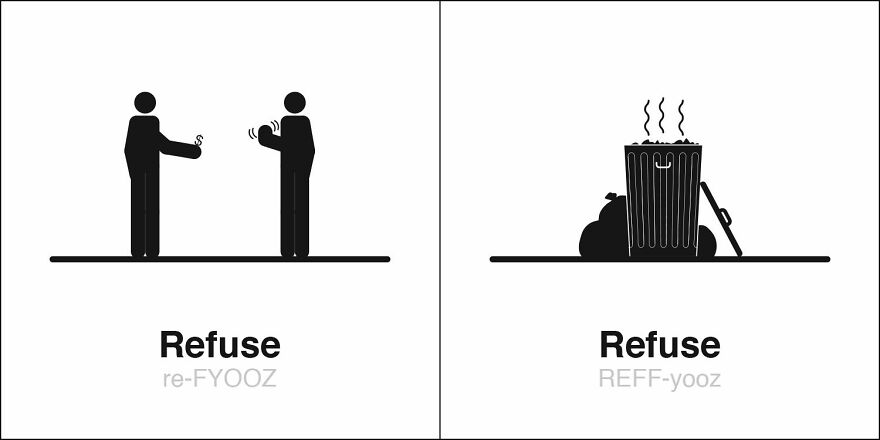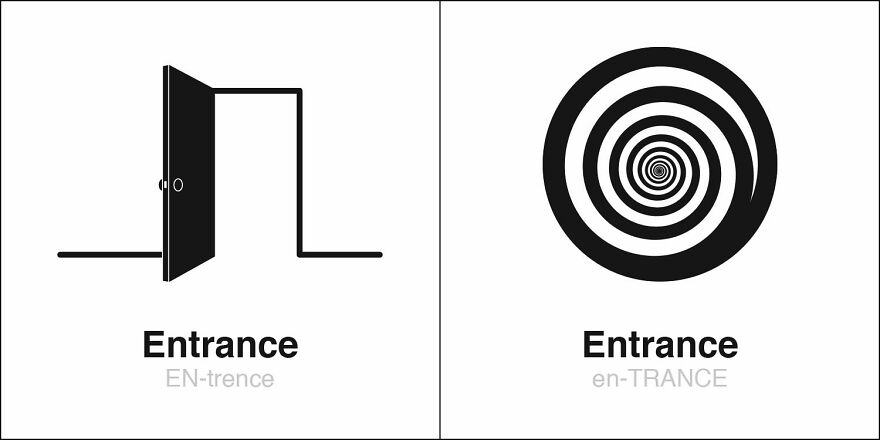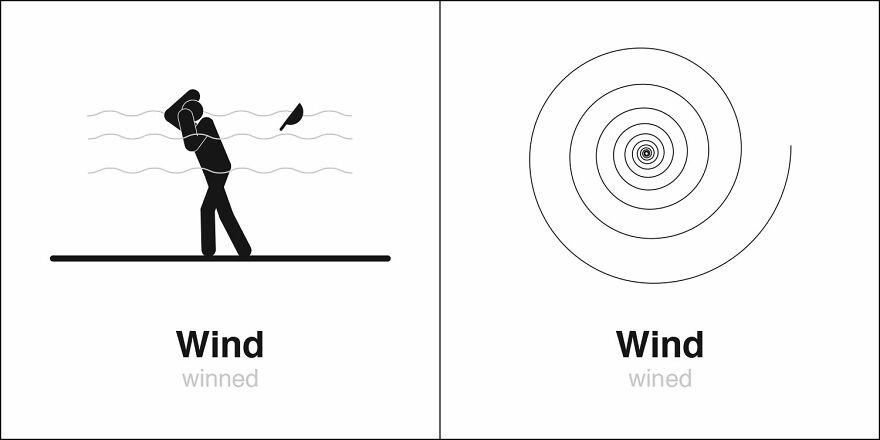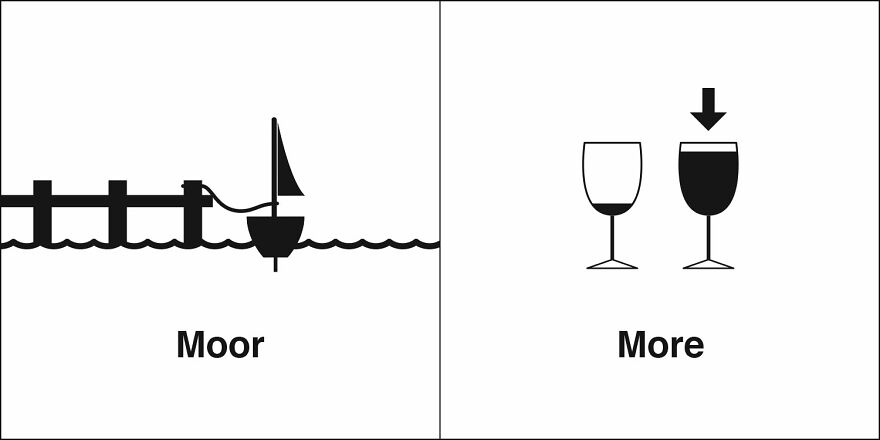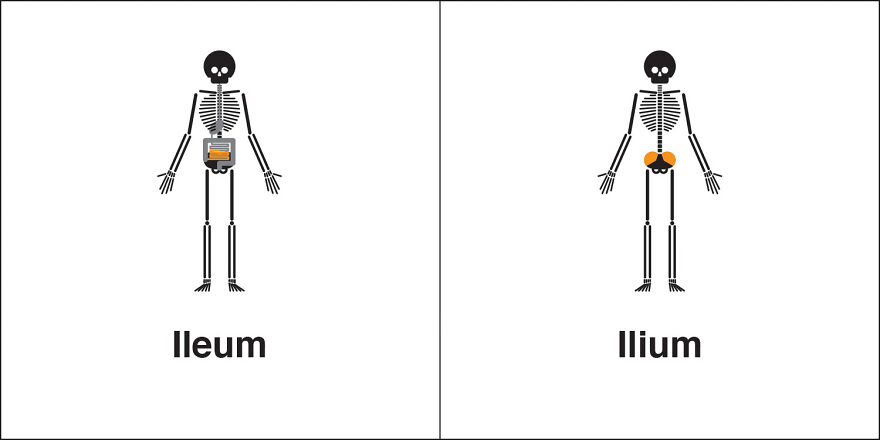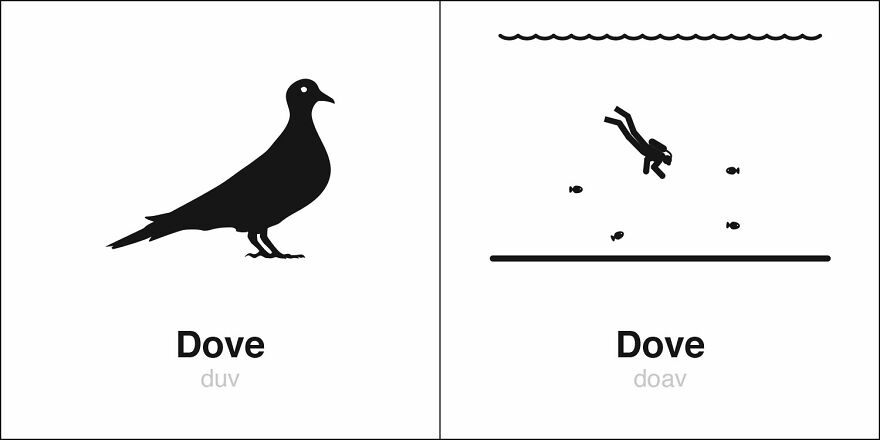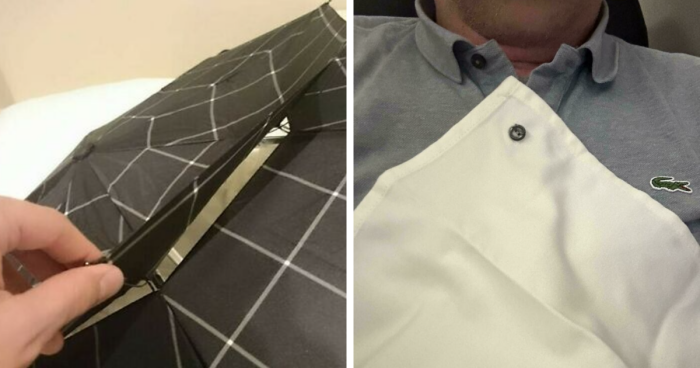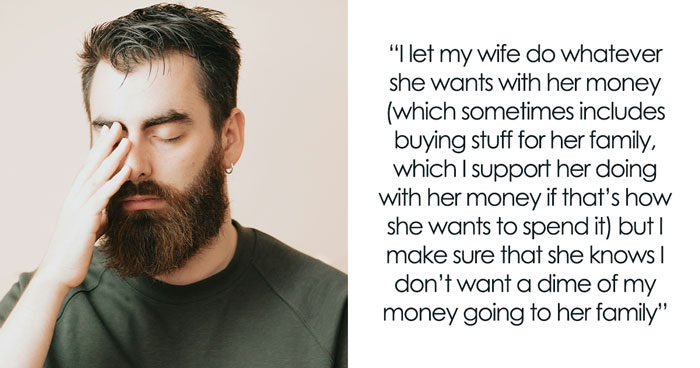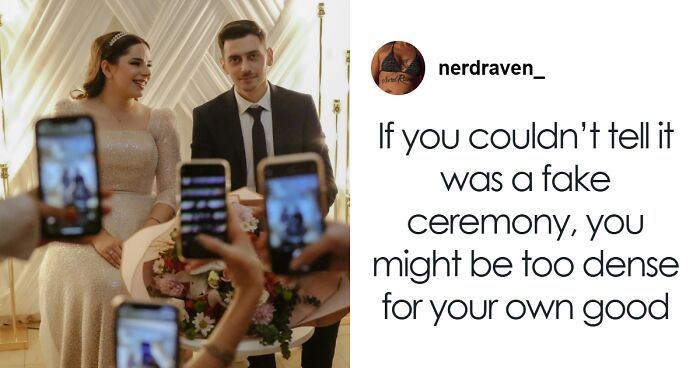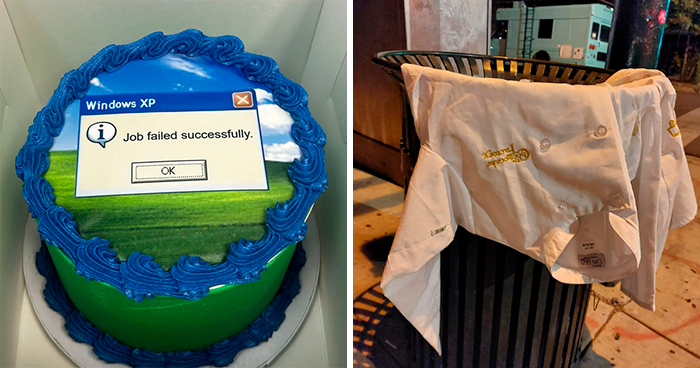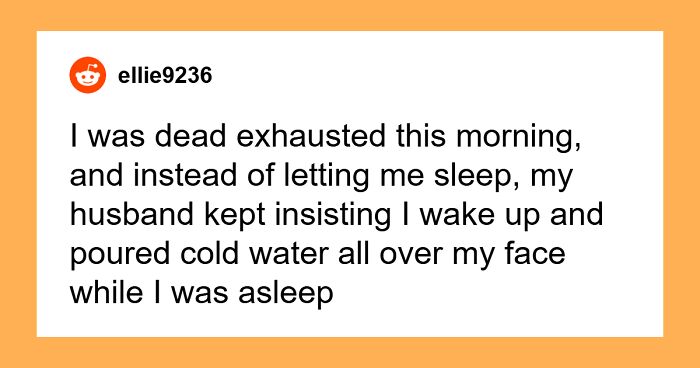
226Kviews
35 Clever Illustrations Of ‘Same’ Words That Are Actually Different, By Bruce Worden (New Pics)
Homophones are words that sound the same but have different meanings, homographs look the same, and homonyms are everything that confuse the heck out of us and befuddle our brains in various linguistic ways. And there’s hardly anyone who knows them better than Bruce Worden, the founder of the ‘Homophones, Weakly’ project. It even has a homophone of ‘weekly’ in the name to gently poke fun at itself, too. It’s brilliant!
Bruce aims to provide a visual exploration, a philological adventure if you will, into the realm of homophones (and recently homographs) with minimalistic black and white illustrations.
You’ll find his best newest drawings below, dear Pandas. So put on your ‘I love English’ caps, scroll down, and upvote your favorite pictures. Want some more for dessert (or is that desert? [Wink wink, nudge nudge])? You’ll find Bored Panda’s first article about ‘Homophones, Weakly’ right over here.
More info: Facebook | HomophonesWeakly.Blogspot.com | Amazon
This post may include affiliate links.
Words that sound or look the same can have vastly different meanings and that’s one of the reasons to love the English language that, after all, is peppered with homophones left, right, and center. You have to learn to love homophones—there really is no alternative! However, it would be naive to assume that it’s only English who has these. Polyglots will know what I mean immediately.
There’s a personal reason why I love homophones, too. They’re a major part of what makes dad jokes and puns work well. And considering how much I love those, well, Bruce’s gentle humor and wordplay are right up my alley. Words are wonderful things and Worden’s stealing my heart one quip at a time.
‘Homophones, Weakly’ has been an ongoing project since 2011. However, Bruce has revealed on his website even though he consistently posted updates right up to 2016, now you can expect only occasional ones. We’re hoping that this ‘occasionally’ turns into ‘weakly/weekly’ once again and with force. Bruce currently has 15k followers on Facebook and we believe he deserves many more.
In fact, there are rumblings that Bruce is back with a vengeance (perhaps a bit like Dr. Bruce Banner’s Hulk? We’ll see). Recently, he’s been focusing more and more on exploring the realm of homographs. These are words that are spelled the same but have different meanings and pronunciations.
Let’s geek out for a second here. Homophones that are spelled the same are called homographs; if they’re spelled differently, they’re heterographs. Depending on what linguistic specialist you talk to, they might tell you that homonyms are homophones or homographs or both.
Others, however, would say that you can only call a word a homonym if they’re both a homophone and a homograph (that is to say they’re spelled and pronounced identically, but have different meanings). Confused? Don’t be—just enjoy the wordplay and the pretty pictures. Don’t let the technical details spoil your fun. They’re just here for major geeks like me.
Where were we? Right, so Bruce has been getting to grips with homographs and, we have to say, they’re a lot of fun. He started focusing on them in March and he said that he’d been keeping a list of them as long as he’s had his list of homophones. He finally decided to start illustrating some of them after taking a well-deserved rest when he finished up his book publishing details.
A year and a half ago, back in August 2019, Bruce published a book called ‘Homophones Visualized’ where he featured a hundred pairs or groups of words for all of us language-lovers to enjoy. “From beat and beet to flee and flea, baron and barren to golf and gulf, each spread contains a pair or group of homophones and corresponding illustrations that provide context for each word.”
I was teaching English as a second language and had to explain this little play on words: "If I bought a newt I would name him 'Tiny' because he'd be 'my newt.'" There were a lot of "wait, so how do I know when it's MIN-it and when it's my-NOOT?" and sadly "you just know" isn't actually an answer.
Ten items or fewer..... I'm in awe of everyone that learns English as a second language.
This hasn’t been Bruce’s only foray into the world of publishing, however. With a surname like ‘Worden,’ can you really resist the siren call of literature for long? Bruce is an award-winning author and illustrator. He’s a big fan of science, rock & roll, and children’s education.
technically, that's a flag of Polish navy. National flag is the one without the emblem.
He first got published in 2011 and his picture book ‘Goodnight Keith Moon’ became a surprise hit. Since then, he’s won the Small Press and Alternative Comics Expo’s SPACE Prize in 2016 for his ‘Woodstalk’ zombies series.
Because you know I'm all about that bass, 'bout that bass, no treble I'm all about that bass, 'bout that bass, no treble I'm all about that bass, 'bout that bass, no treble I'm all about that bass, 'bout that bass Bass, bass, bass (bass)
Bruce lives in Ann Arbor in Michigan together with his wife and son (and bike, according to his writer’s bio; can’t forget the bike). And we're hoping that he'll be showing us the playful side of English and pairing it with his wonderful illustrations for many years to come. Which of his illustrations and word pairs/groups did you enjoy the most, dear Pandas? Let us know in the comment section below.
Being a non-native English speaker and realizing you've been pronouncing half of these words wrong.
Aw, never mind Loretta! There are native English speakers that get them wrong as well. Plus look how wound up the grammar nazis get about people writing them wrongly - they never allow for terrible education or even dyslexia. My poor brother is always so worried that people will think he is an idiot because he cannot spell and yet he is a very clever man, a man with dyslexia. He cannot do many of these and will even spell the same word correctly, then incorrectly in the same paragraph but be incapable of seeing it.
Load More Replies...It would be impossible to do that in french, so much homophones. "Un hère, vétu d'une haire, erre sur une aire, chantonnant d'un air triste en roulant les R un air d'une autre ère." 8 homophones in one sentence. Some authors plays with them, like Alphonse Allais did. "Par le bois du Djinn où s'entasse de l'effroi/ Parle ! Bois du gin !...ou cent tasses de lait froid." Through jinnis wood where dread is piled up/ Talk! Drink some Gin... or hundred cups of cold milk". Exactly the same sound.
I'd love this in other languages. Yours are excellent - 8 in one sentence! Magnifique!
Load More Replies...Being a non-native English speaker and realizing you've been pronouncing half of these words wrong.
Aw, never mind Loretta! There are native English speakers that get them wrong as well. Plus look how wound up the grammar nazis get about people writing them wrongly - they never allow for terrible education or even dyslexia. My poor brother is always so worried that people will think he is an idiot because he cannot spell and yet he is a very clever man, a man with dyslexia. He cannot do many of these and will even spell the same word correctly, then incorrectly in the same paragraph but be incapable of seeing it.
Load More Replies...It would be impossible to do that in french, so much homophones. "Un hère, vétu d'une haire, erre sur une aire, chantonnant d'un air triste en roulant les R un air d'une autre ère." 8 homophones in one sentence. Some authors plays with them, like Alphonse Allais did. "Par le bois du Djinn où s'entasse de l'effroi/ Parle ! Bois du gin !...ou cent tasses de lait froid." Through jinnis wood where dread is piled up/ Talk! Drink some Gin... or hundred cups of cold milk". Exactly the same sound.
I'd love this in other languages. Yours are excellent - 8 in one sentence! Magnifique!
Load More Replies...
 Dark Mode
Dark Mode 

 No fees, cancel anytime
No fees, cancel anytime 











